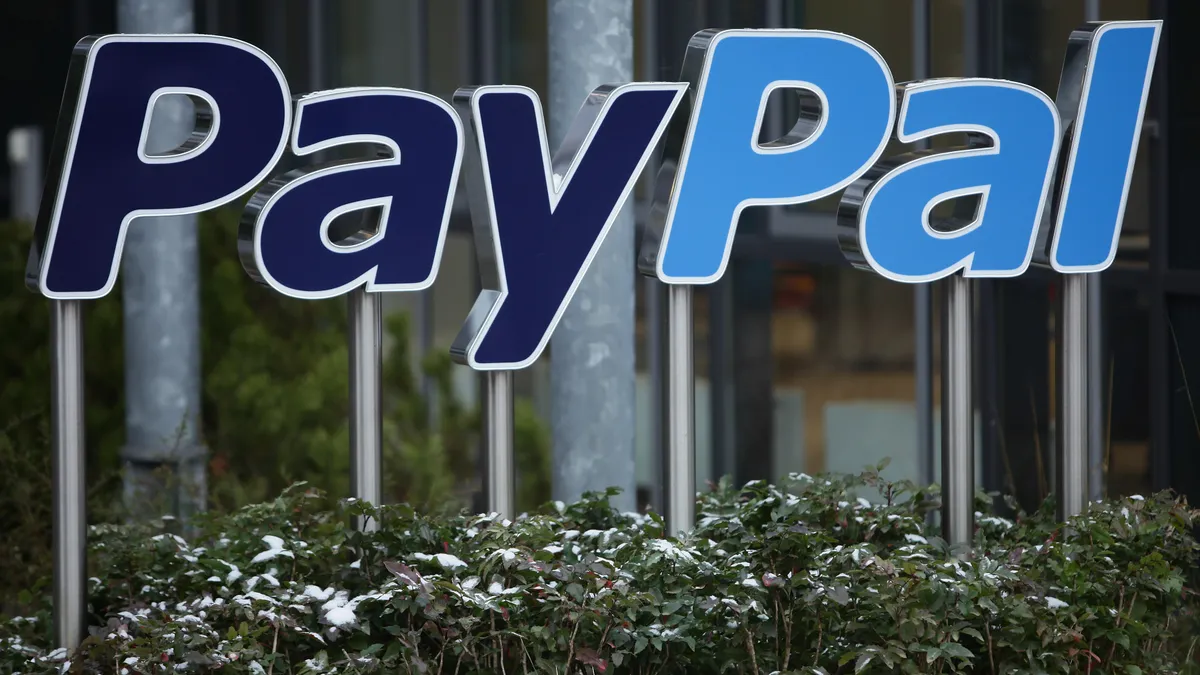Dive Brief:
-
With a surge of online shopping and consequent returns, PayPal has acquired Happy Returns for an undisclosed sum, according to a Thursday announcement.
-
The decision stems from PayPal's desire to play a more significant role in consumers' post-purchase experience and the returns process. The acquisition will allow the payment platform to follow consumers from discovery through payments to returns and exchanges, according to an email to Retail Dive.
-
As part of the acquisition, Happy Returns plans to continue enhancing its platform and extending its reach with PayPal's support.
Dive Insight:
Now that the COVID-19 pandemic has catalyzed an e-commerce surge, the returns process has followed suit. Out of the approximately $428 billion worth of merchandise consumers returned to retailers last year, about $102 billion in e-commerce purchases were returned, according to the National Retail Federation.
As online returns doubled last year, environmental sustainability has come to the forefront as well, as consumers are accustomed to free and straightforward returns processes that can ultimately be harmful to the environment. Happy Returns has expanded its footprint by partnering with retailers and companies like Dressbarn, World Market, Avenue and FedEx.
"We started Happy Returns nearly six years ago with the mission of making returns beautiful for shoppers, retailers, and the planet. At that time, we saw that returning goods bought online was wasteful, expensive and cumbersome for everyone involved," the company said in its announcement.
PayPal's Happy Returns acquisition follows its strategic investment in the company in April 2019, but it isn't the only payment platform looking to integrate returns. In April, Affirm bought Returnly, another returns startup, for $300 million and is expected to close the deal by the end of June.
Meanwhile, PayPal appears to be following the lead of its competitors by providing flexible payment options and streamlining the returns process. Back in September, PayPal rolled out its installment payment option to U.S. consumers, competing more directly with buy now-pay later firms.











